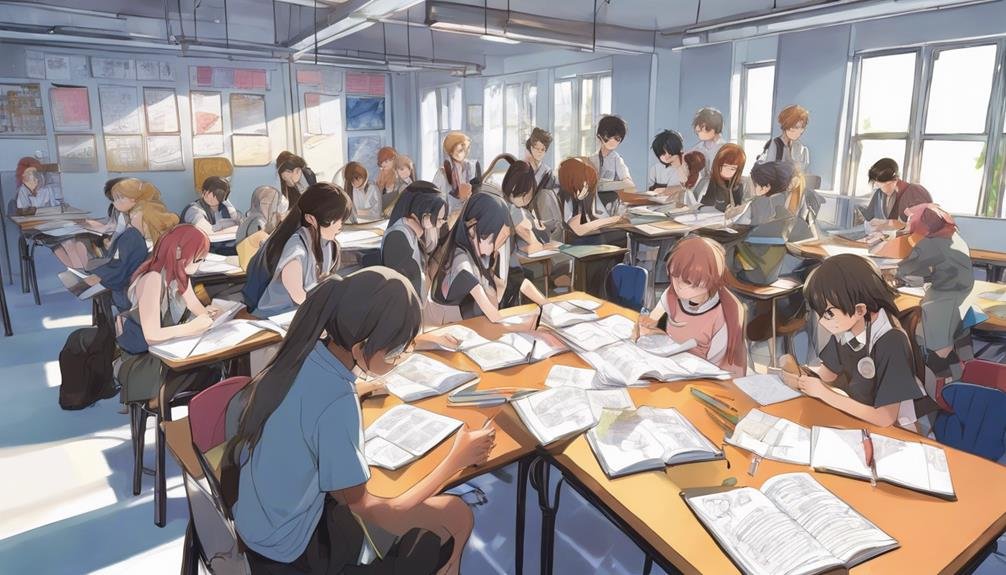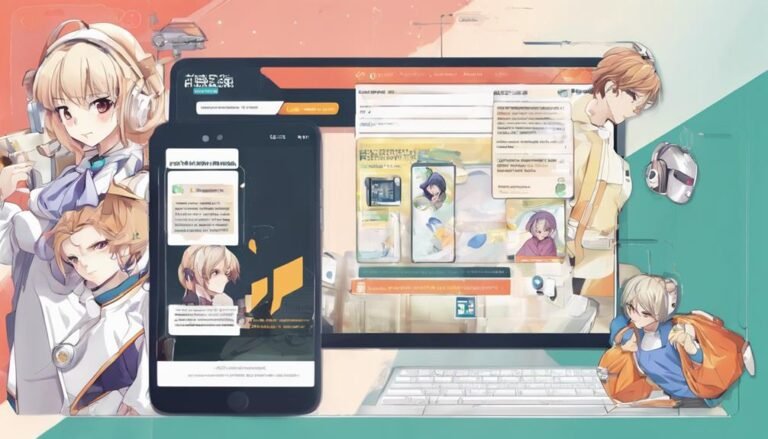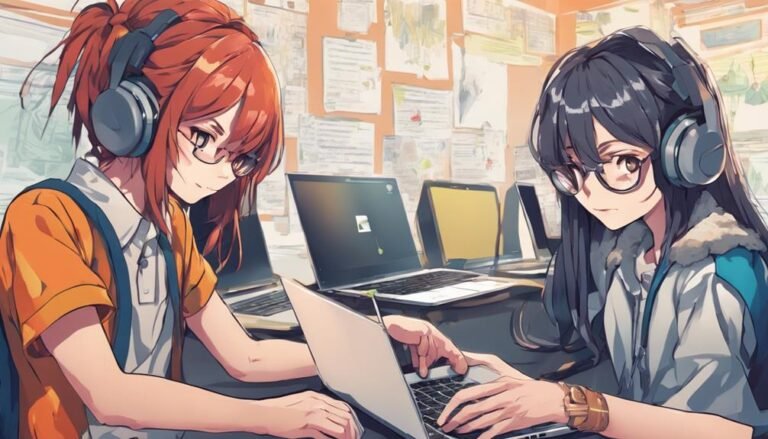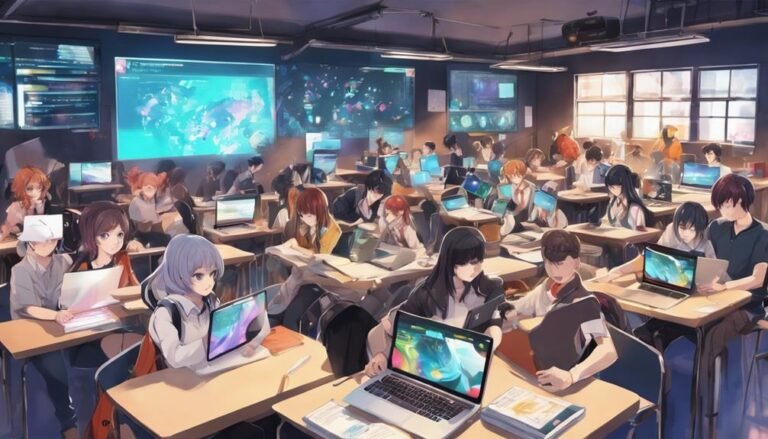What Are the Best Strategies for Promoting Learner Reflection and Metacognition?
To master promoting learner reflection and metacognition, leverage strategies like reflective journaling, Socratic questioning, peer feedback, and self-assessment tools. These methods enhance cognitive processes, critical thinking skills, and academic performance. Reflective journaling boosts metacognitive awareness and deep self-reflection. Socratic questioning fosters critical thinking, exploration of assumptions, and intellectual curiosity. Peer feedback provides diverse perspectives and enhances complex concept understanding. Self-assessment tools empower learners to evaluate progress objectively, prompting critical thinking for continuous improvement. By incorporating these strategies, you can boost metacognitive skills and drive deeper learning for academic success.
Key Takeaways
- Reflective journaling enhances metacognitive awareness and promotes deeper self-reflection.
- Socratic questioning prompts critical thinking and fosters understanding of concepts.
- Peer feedback provides diverse perspectives, constructive criticism, and deepens understanding.
- Implementing self-assessment tools empowers learners to evaluate progress and prompts critical thinking.
- Peer collaboration enhances synthesis of information, teamwork skills, and deep understanding.
Importance of Metacognition
Understanding the significance of metacognition is essential for enhancing learning outcomes and fostering academic success. Metacognition benefits individuals by allowing them to regulate their cognitive processes, monitor their understanding of a topic, and adapt their learning strategies accordingly. Through reflective thinking, learners can gain a deeper understanding of their own learning processes, identify areas for improvement, and make necessary adjustments to enhance their academic performance.
Research has shown that metacognition benefits students by improving their problem-solving skills, boosting their academic achievement, and enhancing their overall learning experience. By engaging in reflective thinking practices, individuals can develop a greater awareness of their strengths and weaknesses, leading to more effective learning strategies and improved performance in various academic tasks.
Incorporating metacognitive strategies into educational settings can empower learners to take control of their own learning, become more self-regulated, and ultimately achieve greater success in their academic endeavors. By fostering a culture of metacognition and reflective thinking, educators can help students develop the skills and mindset needed to excel academically and beyond.
Reflective Journaling Techniques
Implementing reflective journaling techniques in educational settings has been shown to enhance metacognitive awareness and promote deeper self-reflection among learners. By engaging in reflective journaling, individuals can actively assess their learning processes, leading to personal growth and improved critical thinking skills. Through the act of journaling, learners are encouraged to introspect on their thoughts, actions, and emotions, fostering a greater understanding of themselves and their learning experiences.
Research indicates that reflective journaling provides a structured platform for learners to document their progress, challenges, and achievements. This process enables individuals to identify patterns in their thinking and behavior, facilitating the development of metacognitive skills. By regularly recording their thoughts and reflections, learners can track their growth over time, gaining insights into their decision-making processes and problem-solving strategies.
Furthermore, reflective journaling encourages individuals to contemplate different perspectives, analyze situations critically, and consider alternative solutions. This practice not only enhances metacognitive awareness but also cultivates a habit of continuous self-improvement, ultimately leading to a more profound understanding of oneself and the world around them.
Socratic Questioning Methods
Engaging learners in Socratic Questioning Methods prompts deep critical thinking and encourages active exploration of underlying assumptions and reasoning processes. Socratic questioning, rooted in the teachings of Socrates, involves a series of open-ended questions that lead individuals to examine their beliefs, challenge their thinking, and uncover hidden assumptions. This method fosters a deeper understanding of concepts and enhances metacognitive skills by encouraging learners to reflect on their thought processes.
When implementing Socratic Questioning Methods, educators can guide learners through a structured inquiry process that enhances critical thinking and problem-solving abilities. By posing thought-provoking questions, instructors can stimulate intellectual curiosity and promote a deeper engagement with the subject matter. This approach encourages students to analyze information critically, evaluate different perspectives, and develop a more nuanced understanding of complex issues.
| Pros | Cons |
|---|---|
| Enhances critical thinking skills | Can be time-consuming |
| Encourages active participation | Requires skilled facilitation |
| Fosters deep exploration of concepts | May challenge preconceived notions |
Peer Feedback and Collaboration
Peer feedback and collaboration greatly enhance learners' ability to synthesize information and deepen their understanding of complex concepts through active engagement with their peers. Peer reflection allows students to critically assess each other's work, providing diverse perspectives and constructive criticism that can lead to improved learning outcomes. Collaborative learning, where students work together towards a common goal, fosters a sense of shared responsibility and encourages active participation.
Research suggests that peer feedback not only benefits the receiver but also the giver, as articulating feedback requires a deeper understanding of the material. Additionally, engaging in collaborative tasks can help students develop essential skills such as communication, teamwork, and problem-solving. By working together, learners can leverage each other's strengths, address weaknesses, and collectively achieve higher levels of understanding.
Incorporating peer feedback and collaboration into educational settings can create a dynamic learning environment that promotes metacognition and encourages students to reflect on their own thinking processes. Emphasizing peer reflection and collaborative learning strategies can enhance students' cognitive abilities and contribute to their overall academic growth.
Implementing Self-Assessment Tools
Utilizing self-assessment tools empowers learners to evaluate their own progress and understanding, fostering autonomy and metacognitive awareness. Self-reflection activities are essential components of self-assessment tools that prompt learners to think critically about their learning processes, strengths, and areas for improvement. By engaging in self-reflection activities, learners can deepen their understanding of the material and develop metacognitive skills that are vital for academic success.
Assessment rubrics are effective tools for guiding self-assessment processes. Clear and well-structured rubrics provide learners with criteria for evaluating their work, making the assessment process more objective and transparent. When learners have access to assessment rubrics, they can better understand expectations and assess their own performance accurately.
Research indicates that implementing self-assessment tools, such as self-reflection activities and assessment rubrics, can enhance students' metacognitive awareness and promote deeper learning. By actively engaging in self-assessment, learners take ownership of their learning journey and develop the skills necessary for continuous improvement.
Conclusion
So, after diving deep into the world of promoting learner reflection and metacognition, you may think you have all the answers. But, as we've learned, the best strategies may not be what you expected.
Reflective journaling, Socratic questioning, peer feedback, collaboration, and self-assessment tools are just the tip of the iceberg.
Keep exploring, experimenting, and pushing the boundaries of your teaching methods to truly unleash the potential of your learners.
The journey never ends.







